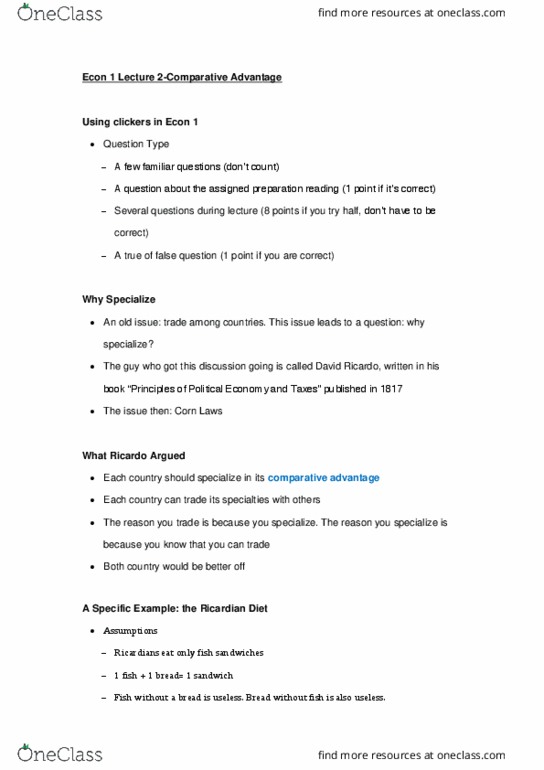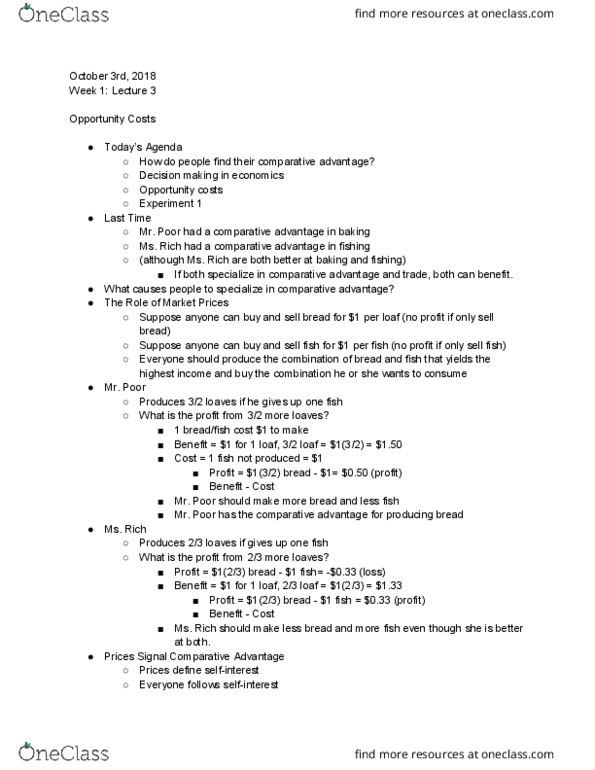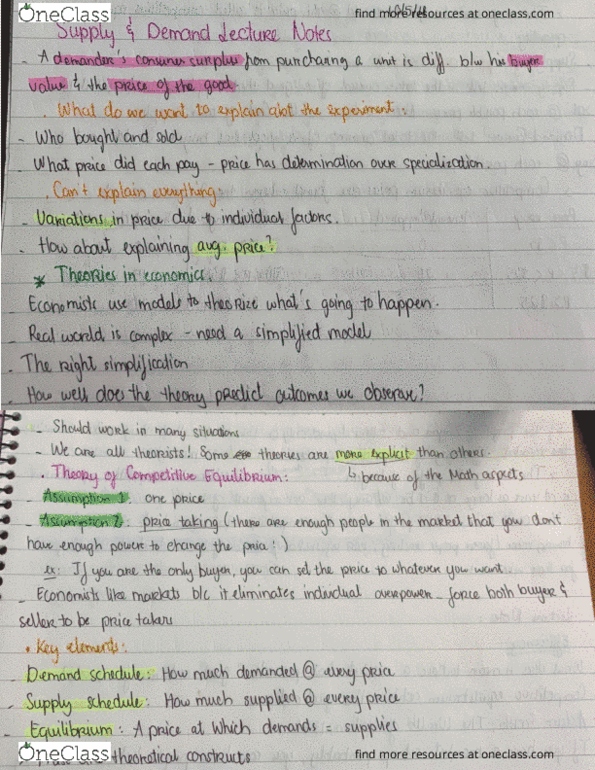ECON 1 Lecture Notes - Lecture 3: Standard-Definition Television, Decision Rule, Ebay
Document Summary
Get access


Related Documents
Related Questions
Question 1
The law of demand states that there is a direct relationship between supply and demand.
True
False
4 points
Question 2
Equilibrium is a state of balance between supply and demand.
True
False
4 points
Question 3
Goods are scarce for both rich and poor.
True
False
4 points
Question 4
"The big corporations in this country, like ExxonMobil and GM, have deep pockets and need to be hiring more people." This is a positive statement about economic policy.
True
False
4 points
Question 5
The law of supply states that there is a direct relationship between price and quantity demanded.
True
False
4 points
Question 6
In the circular flow model, firms own economic resources, and householdsbuy the manufactured products and services.
True
False
4 points
Question 7
Households play a dual role of providing the factors of production whilepurchasing the goods and services of firms.
True
False
4 points
Question 8
Opportunity cost is the lowest valued benefit that must be sacrificed asthe result of choosing an alternative.
True
False
4 points
Question 9
Scarcity denotes that our desire for a good exceeds the amount that isfreely available from nature.
True
False
4 points
Question 10
Economics is a social science concerned with satisfying man's unlimitedwants with limited resources.
True
False
4 points
Question 11
Joint output of individuals or nations will be maximized when goods areexchanged between parties in accordance with the law of"comparative advantage".
True
False
4 points
Question 12
The production possibilities frontier assumes that the level of technologyvaries when applying the model.
True
False
4 points
Question 13
Excess demand in the market will cause the price of a product to decline.
True
False
4 points
Question 14
Demand is measured on the vertical axis and supply on the horizontalaxis.
True
False
4 points
Question 15
A change in quantity demanded is a movement along the same demandcurve.
True
False
4 points
Question 16
As globalization and world trade proliferates, individual markets withincountries' economies become more competitive.
True
False
4 points
Question 17
Which growth theory compares a subsistence real wage rate to the actual real wage rate?
| Classical growth theory | ||
| Inflation growth theory | ||
| Neoclassical growth theory | ||
| New growth theory |
4 points
Question 18
Suppose the working age population in Tiny Town is 100 people. If 25 of these people are NOT in the labor force, the ________ equals ________.
| unemployment rate; 25/100 Ã 100 | ||
| employment rate; 25/75 Ã 100 | ||
| labor force; 75 | ||
| labor force; 25/100 Ã 100 |
4 points
Question 19
Suppose there is a rise in the real wage rate. As a result, the quantity of labor demanded:
| increases. | ||
| decreases. | ||
| does not change because there is no change in the money wage rate. | ||
| increases only if the price level also decreases. |
4 points
Question 20
GDP can be computed as the sum of:
| all sales that have taken place in an economy over a period of time. | ||
| the total expenditures of consumers and business over a period of time. | ||
| the total expenditures of consumption, investment, and government expenditure on goods and services over a period of time. | ||
| the total expenditures of consumption, investment, government expenditure on goods and services, and net exports over a period of time. |
4 points
Question 21
The real wage rate equals:
| (100 x (money wage rate/price level) | ||
| (100 x (price level/money wage rate) | ||
| (money wage rate x (price level) | ||
| (money wage + (number of hours worked/(price level) |
4 points
Question 22
If the CPI was 121.5 at the end of 2007 and 138.3 at the end of 2008, the inflation rate over these two years was:
| 10.2 percent. | ||
| 13.8 percent. | ||
| 12.2 percent. | ||
| 16.8 percent. |
4 points
Question 23
A movement along the production function is the result of a change in:
| the quantity of labor. | ||
| technology. | ||
| capital. | ||
| interest rates. |
4 points
Question 24
All of the following are part of fiscal policy EXCEPT:
| setting tax rates. | ||
| setting government spending. | ||
| choosing the size of the government deficit. | ||
| controlling the money supply. |
4 points
Question 25
Along a production possibilities frontier for real GDP and the quantity of leisure time, as leisure time increases, real GDP:
| decreases. | ||
| increases. | ||
| stays the same. | ||
| could increase, decrease or stay the same. |




